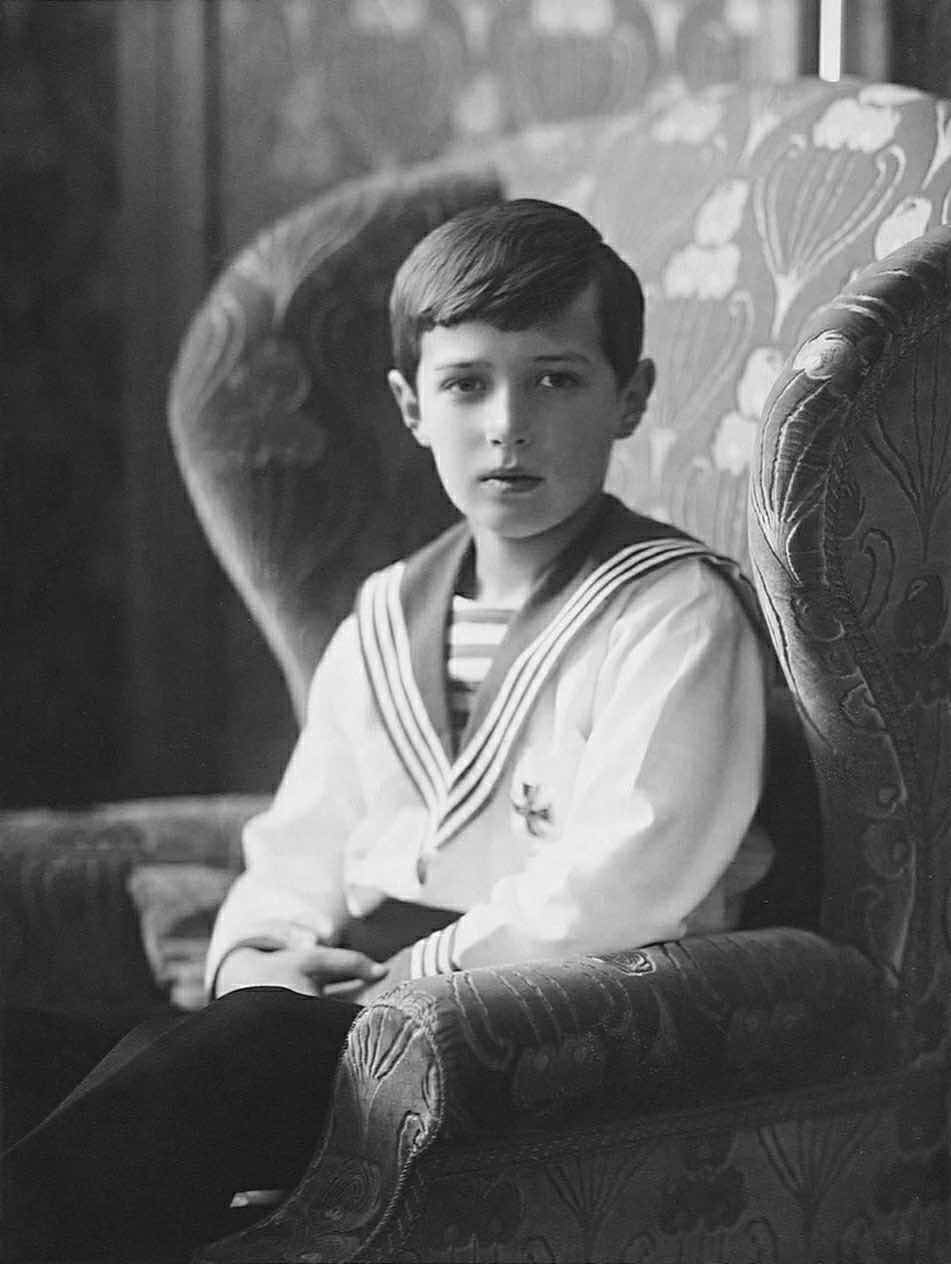Marriage and societal pressure
Now, what triggered me to both think about the topic of marriage today was watching a documentary about the genetic conditions that have been exponentially increasing within the Pakistaní population as I’ve been on the bus passing what seems like 7,000 bridal shops along Parramatta Road.





For the Pakistanis, the problem is that it’s been a long standing tradition of familial marriages; they just won’t stop marrying their first cousins.
I mean the creep and incest factor aside, it’s such a well established fact that close genetic matches will increase the chance of genetic disease. We can see it throughout history, most notably with the Hapsburgs, the time Czar Nicholas II and George V looked like twins, and when Alexei Romanov had haemophilia, and it generally never works out well. One generation may appear totally fine, but as the gene pool continues to be reduced you just end up with a greater number of carriers and affected persons.
I hate to be giving a basic genetics lesson, but let’s go for it:
If one parent is a carrier and the other isn’t, the chances become 1 in 4 that the carrier gene will transfer to their children.
If neither parent is a carrier obviously there’s no gene to pass on.
However, if both parents are carriers, the chances of the carrier gene being transferred is almost a given. Say if both parents had dwarfism or Down syndrome then it’s very likely one or all of their children will have the same condition and the ones that don’t have symptoms will be carriers.
There’s a very wholesome French movie I recommend that touched on the topic of people marrying who both have Down Syndrome, its called the Eighth Day. Its just sweet in the end really.
It’s the same principle that’s caused the health problems in a lot of purebred dog breeds like bulldogs, pugs, German Shepards, and Boston terriers.
In short, inbreeding is bad for the offspring and helps to propagate genetic disorders. And it’s really icky.
So the problem with Pakistan, and it’s not just them it happens with Bangladesh and other populations too, is that the tradition is so deep set that the negative affects get virtually ignored in favor of societal and familial pride.
For me, as a white English/Australian (25% Indian) woman the thought of marrying any of my cousins is super wrong. For these populations it’s normal and expected.
Children are betrothed at young ages by their parents and the ramifications of trying to end these arrangements can become very dangerous. There are countless cases of both men and women all over the world who have attempted to escape arranged marriages to end up either murdered, publicly humiliated and all sorts of other negative BS. Some are even kidnapped or tricked into leaving the countries they live in and held captive. And we haven’t even talked about child brides. It’s nuts.
The societal pressure surrounding marriage can be more extreme in some cases than others, but that doesn’t mean it’s necessarily non-existant only more subtle.
Look at the Australian plebiscite surrounding changing the wording in the marriage act in 2017. The point of the change was to remove the words ‘man and woman’, thereby becoming more inclusive to allow same sex couples to marry legally. I won’t get into the differences between legal marriage and de facto, which was a huge drive for the change in that it allowed same sex couples more legal protection in the event of relationship breakdown or death, but it also just provided the same basic freedom they already deserved.
Of course, the pearl-clutching Karens of the world complained that it was ruining the sanctity of marriage and that (when in history was marriage ever actually sacred, and not just an excuse to discriminate?) but fortunately they didn’t get their way.
Historically marriage, and it’s subsequent expectations, were related to family, pride, prestige, money, breeding and for forging alliances. Marrying for love is a relatively new idea that doesn’t even exist all over the world. Legally marriage is a means to an end, and provides a particular level of legal protection otherwise unafforded.
Married individuals were expected to provide heirs (especially in the upper classes) to carry on the family name and bring honour, glory and assets to the family itself.
What I’m trying to say is that marriage itself comes with a lot of expectations, even in 2019, and those expectations can vary from culture to culture.
What I want to talk about to today though is the expectation to marry, how that differs around the world, and how it’s so much more prevalent than we like to admit.
So, as I mentioned, I can speculate on other cultures and comment based on the research I do, but my perspective comes from that of a ‘white’ woman, in my late 20s, having grown up in a middle class Australian/immigrant family and I’m heterosexual. I’m biased (as everyone is) and I’m privledged in a lot of ways.
Societal expectation for me where marriage is concerned is that I will eventually ‘when the right man comes along’. I’ve always sort of just accepted that without thinking about it too much. I remembered being asked when I was very little who I was going to marry when I was older and not knowing what to say. No disrespect to the person that asked me, they probably unpicked their reasoning far less in the early 90s, and that’s the expectation. Young girl, white, likely heterosexual, no notable health issues, prime marriage material.
Whether we think about it or not though, the same societal expectations about marriage follow the majority of men and women. It comes not only from our parents but from the greater community at large and has been cultivated over decades. It actually changes very slowly.
For a lot of people it’s harmless and always will be, but for others it’s actually very damanaging. Mainly I’m talking about the ones we mentioned before that are child brides, inter-married to family members, forced to marry older men or women (rarer, but happens), and there are those that face even worse stakes like threats, kidnapping and even murder.
Then there’s the mental health aspect. I know that in context of the above it probably seems pretty minor, but the pressure to marry even now can lead to some pretty big damage and mental illness is no joke.
The idea of a fantasy wedding can be a big dream for plenty of little girls (and boys) and not achieving those dreams can be crushing. Whether is not finding someone to marry at all or having the wedding itself overtaken by the expectations by others, it’s the same principle that leads to the many wedding related tv shows and the concept of the bridezilla. Longing for the perfect fantasy wedding and having it live up to expectations (everyone’s).
Here’s a case study for you: Bridget Jones.
If you remember enough, Bridget is actually from a relatively weathty upper middle class family and her entire story revolves around needing to find a man to marry because it’s what’s been expected of her, and what she subsequently expects of herself. Her entire worth revolves around being married or single and it’s how she’s been conditioned based on the expectations placed on her by her family and the surrounding society.
It’s a bit of a social punchline now that being single is miserable, or great, but no in between. But the reality is that the underlying expectation to marry is still kind of there - just ask anyone.
As a woman now approaching the end to my 20s, let me tell you that the struggle can be real sometimes. Some people are competitive with you (taking marriage as an accomplishment or a win), some pity you (because no one wants to marry you), some envy you (because they wish they didn’t get married - and this isn’t the forced or icky ones here, just the regretful ones), and some will downright give zero fucks. Those are the best.
For some, like Bridget Jones, being unmarried is a constant pressure and effects self worth and mental health, while for others it’s not an issue.
Just as marriage has changed, so has the expectation related to it which is partly why all the reasons Ive mentioned have got me thinking. It’s such a massive topic, I haven’t even begun to do justice to it. We haven’t even touched on divorce and spinsterhood. It’s a books worth of discussion and honestly I’m kind of interested in writing it but it will take a lot more research than I’m prepared for today.
But it just got me thinking about how entrenched the expectations about marriage really are in our society and throughout the world. Some issues on the scale seem worse than others, and some probably are, but every culture has its problems and marriage is just one of them.
PSA though, for God’s sake, don’t marry your cousins.
Sam xox
Comments
Post a Comment